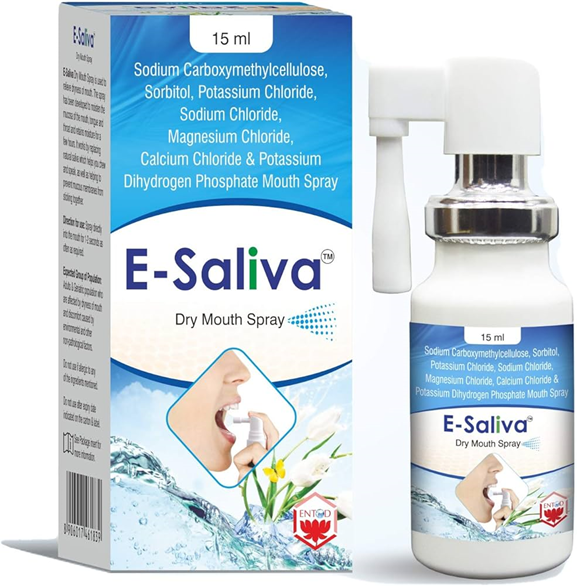A nurse is planning care for a client who is receiving radiation therapy to treat throat cancer and reports a change in the taste of food. Which of the following interventions should the nurse include in the plan of care?
Offer artificial saliva frequently.
Provide three large meals daily.
Add honey to sweeten fruit smoothies.
Heat food before serving.
The Correct Answer is A
Choice A: This is correct because offering artificial saliva frequently can help moisten the mouth and improve the taste of food. Radiation therapy can cause dry mouth and altered taste sensation.

Choice B: This is incorrect because providing three large meals daily can be overwhelming and unappetizing for the client. The nurse should provide small, frequent meals that are high in protein and calories.
Choice C: This is incorrect because adding honey to sweeten fruit smoothies can irritate the throat and increase the risk of infection. The nurse should avoid foods that are acidic, spicy, or sticky.
Choice D: This is incorrect because heating food before serving can enhance the unpleasant taste and smell of food. The nurse should serve food cold or at room temperature.
Nursing Test Bank
Naxlex Comprehensive Predictor Exams
Related Questions
Correct Answer is C
Explanation
Choice A: This is incorrect. Vegetable shortening is high in saturated fat and trans fat, which can increase the risk of cardiovascular disease by raising the LDL (bad) cholesterol and lowering the HDL (good) cholesterol.
Choice B: This is incorrect. Lard is animal fat that is high in saturated fat and cholesterol, which can also increase the risk of cardiovascular disease by raising the LDL cholesterol and lowering the HDL cholesterol.
Choice C: This is correct. Canola oil is low in saturated fat and high in monounsaturated fat and omega-3 fatty acids, which can lower the risk of cardiovascular disease by lowering the LDL cholesterol and raising the HDL cholesterol.
Choice D: This is incorrect. Butter is dairy fat that is high in saturated fat and cholesterol, which can also increase the risk of cardiovascular disease by raising the LDL cholesterol and lowering the HDL cholesterol
Correct Answer is D
Explanation
Choice D: Comparing the reading to the preoperative value is the first action that the nurse should take because it can help determine if the client's blood pressure is normal for them or if it indicates hypotension, which can be a sign of hemorrhage, shock, or infection.
Choice a is not correct because covering the client with a warm blanket is not the first action that the nurse should take, but rather an intervention that can help prevent hypothermia and shivering, which can increase oxygen demand and blood loss.
Choice b is not correct because increasing the IV fluid rate is not the first action that the nurse should take, but rather an intervention that can help restore fluid volume and blood pressure, if indicated by other data and prescribed by the provider.
Choice c is not correct because reassuring the client is not the first action that the nurse should take, but rather an intervention that can help reduce anxiety and stress, which can affect blood pressure and heart rate.
Whether you are a student looking to ace your exams or a practicing nurse seeking to enhance your expertise , our nursing education contents will empower you with the confidence and competence to make a difference in the lives of patients and become a respected leader in the healthcare field.
Visit Naxlex, invest in your future and unlock endless possibilities with our unparalleled nursing education contents today
Report Wrong Answer on the Current Question
Do you disagree with the answer? If yes, what is your expected answer? Explain.
Kindly be descriptive with the issue you are facing.
